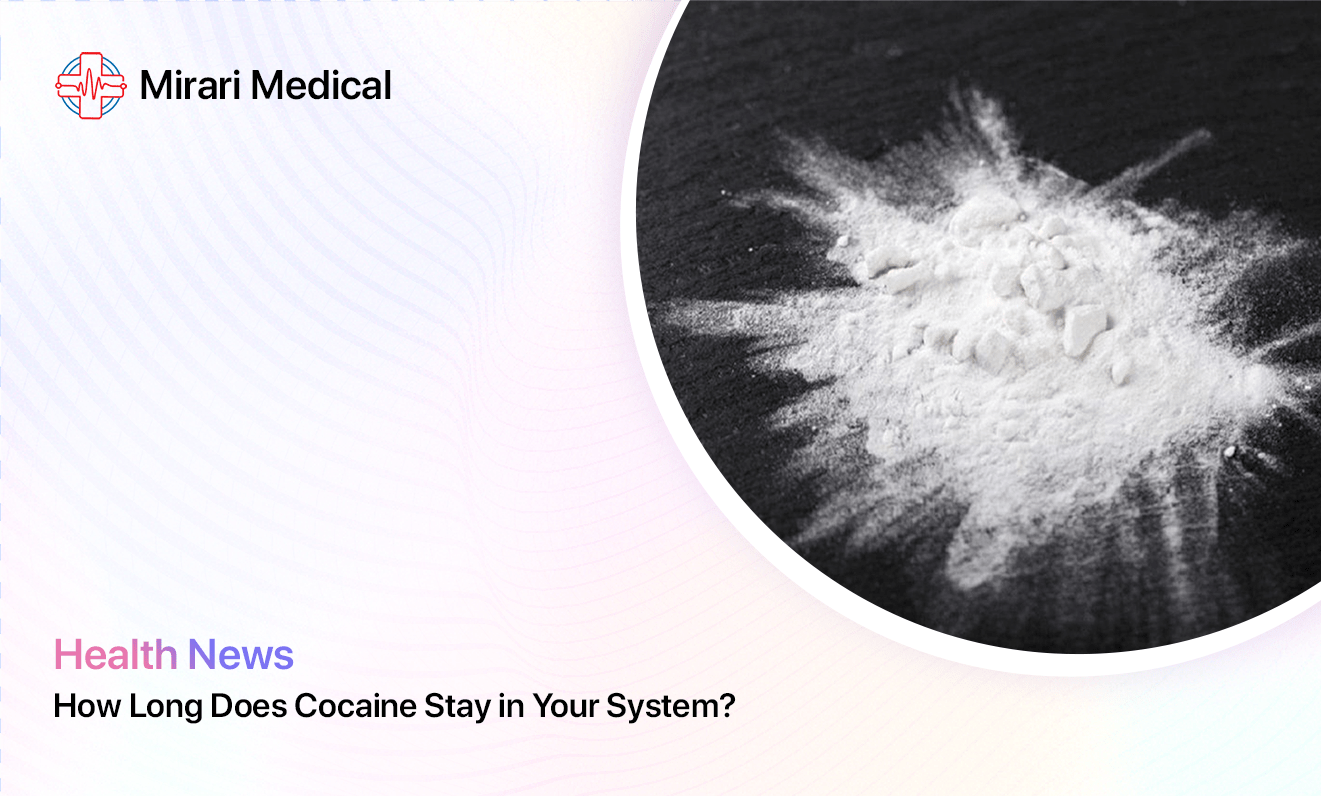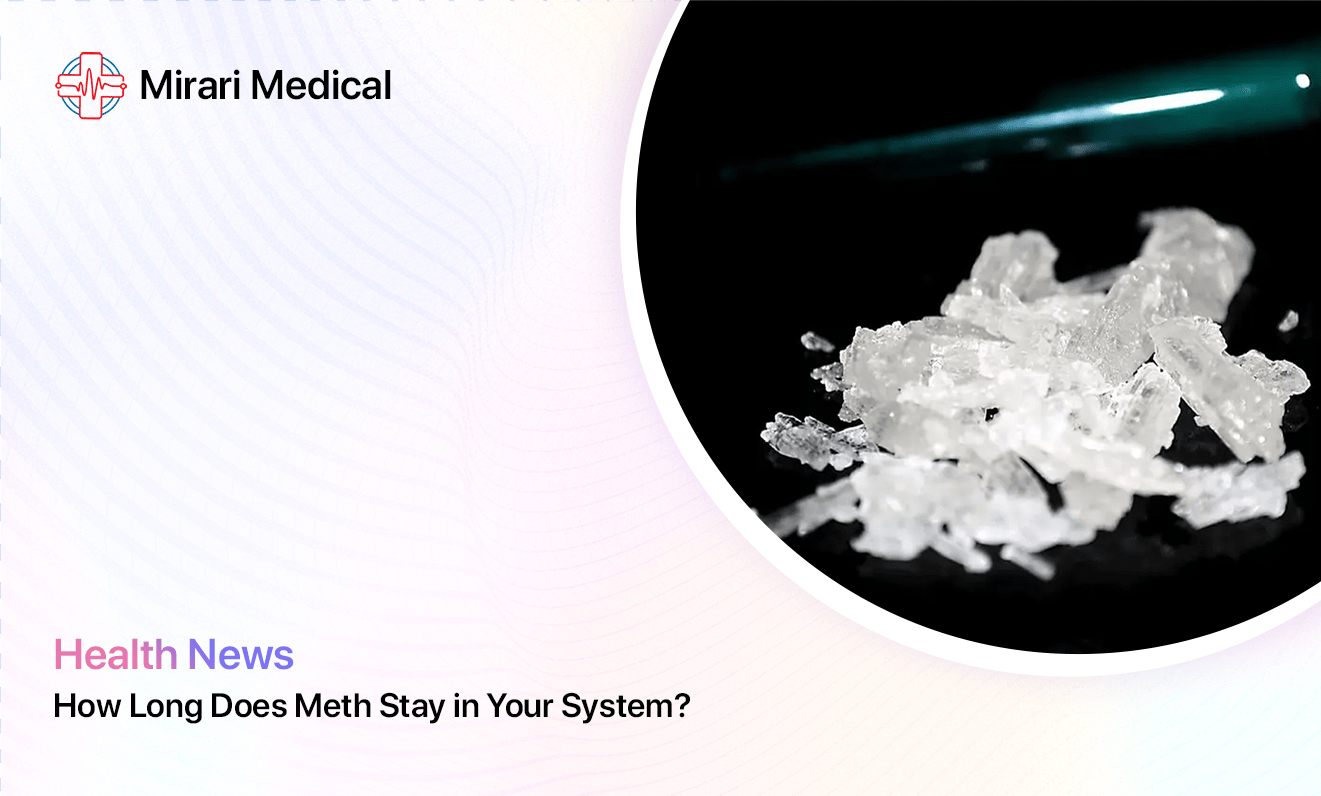How Long Does Adderall Stay in Your System?

You may be interested
Adderall is a commonly prescribed medication used to treat attention deficit hyperactivity disorder (ADHD) and narcolepsy. However, many people wonder just how long this powerful stimulant lingers in the body after taking it. The answer depends on several factors, but generally Adderall can be detected in your system for up to 4 days after last use.
In this in-depth article, we’ll explore what Adderall is, how it works in the body, how long it stays in your system, and what influences its duration. We’ll also discuss the potential risks of misusing this medication.
Understanding Adderall and Its Effects
What is Adderall?
Adderall is the brand name for a prescription medication that contains a combination of amphetamine and dextroamphetamine. These two central nervous system stimulants work together to increase focus, attention, and energy.
Adderall is most commonly prescribed to treat symptoms of attention deficit hyperactivity disorder (ADHD). It helps improve concentration and decrease impulsiveness and hyperactivity. Adderall is also sometimes used to treat narcolepsy, a sleep disorder that causes excessive daytime sleepiness and sudden sleep attacks.
This medication comes in both immediate-release (Adderall IR) and extended-release (Adderall XR) versions. It’s available as tablets in several dosage strengths ranging from 5 mg to 30 mg.
How Adderall Works in the Body
Adderall works by increasing levels of certain neurotransmitters in the brain, primarily dopamine and norepinephrine. Neurotransmitters are chemical messengers that help relay signals between nerve cells.
Dopamine plays a key role in motivation, reward, and pleasure. By boosting dopamine activity, Adderall enhances concentration and focus.
Norepinephrine affects blood vessels, blood pressure, heart rate, blood sugar, and breathing. Increased norepinephrine activity is associated with heightened alertness and energy.
Adderall achieves these effects by blocking the reuptake of dopamine and norepinephrine in the brain. This means more of these neurotransmitters remain active, amplifying their effects. Adderall also triggers the release of adrenaline, the “fight-or-flight” hormone.
Immediate-Release (IR) vs. Extended-Release (XR) Adderall
Adderall comes in two formulations:
- Immediate-release (IR): Adderall IR is absorbed into the bloodstream quickly, with effects felt within 30 minutes and reaching their peak around 3 hours after taking it. The effects of Adderall IR typically last 4 to 6 hours.
- Extended-release (XR): Adderall XR capsules contain two types of beads that release the medication at different times. Half the dose is released immediately while the rest is released gradually over the course of the day. Effects are usually felt within 30-60 minutes and peak 4-7 hours after taking it. Adderall XR effects can last up to 12 hours.
The type of Adderall prescribed depends on the individual and the condition being treated. Adderall IR is often used for narcolepsy, while Adderall XR is typically preferred for ADHD as it provides symptom control for a full day.
Adderall’s Half-Life and Detection Time
What is Adderall’s Half-Life?
A medication’s half-life refers to how long it takes for half of the drug to be eliminated from your system. Knowing a drug’s half-life gives us a good estimate of how quickly it will clear the body.
The half-life of Adderall varies depending on the version:
- Immediate-release: The half-life of Adderall IR is around 4-6 hours.
- Extended-release: Adderall XR has a half-life of about 10-13 hours.
This means that after those time periods, half of the Adderall dose has left your system. But how long is Adderall detectable on a drug test?
Detection Time in Different Tests
The amount of time Adderall can be detected depends on the type of drug test.
Blood Tests
Adderall can be detected in the blood for up to 46 hours after last use, depending on the dose. However, blood tests are not commonly used for routine drug screenings.
Urine Tests
Urine tests are the most common method of drug screening. Adderall is detectable in urine for 72-96 hours after the last dose. Heavier, long-term use can extend this window.
Saliva Tests
Traces of Adderall can be found in saliva for 20-50 hours after the last dose. Saliva tests are sometimes used by employers or in addiction treatment settings.
Hair Tests
With a hair follicle test, Adderall may be detectable for up to 3 months after last use. However, these tests are very uncommon and usually only used in legal or research settings.
To summarize, here are the general detection windows for Adderall:
| Test Type | Detection Time After Last Use |
|---|---|
| Blood | Up to 46 hours |
| Urine | 72-96 hours |
| Saliva | 20-50 hours |
| Hair | Up to 3 months |
Factors Influencing Adderall’s Duration
Several variables affect how long Adderall stays in your system. The main factors are:
Dosage
The higher the Adderall dose you take, the longer it will take to clear your system. Higher doses take more time to be fully metabolized and eliminated.
Age and Health Condition
As you get older, your metabolism tends to slow down. This means an older person’s body will usually take longer to process and clear Adderall compared to a younger individual.
Certain health conditions can also impact the speed of Adderall metabolism. Kidney or liver problems may cause the drug to build up in your system and take longer to eliminate.
Frequency of Use
How often you take Adderall influences its duration in the body. Frequent, long-term use can lead to drug accumulation and slower clearance. Infrequent or one-time use will be flushed out faster.
Metabolism
Your individual metabolism plays a significant role in determining how quickly your body processes Adderall. People with faster metabolisms will break down and eliminate the drug more rapidly.
Factors like genetics, activity level, and overall health all impact your metabolic rate. Some people just naturally metabolize drugs faster than others.
Detecting Adderall in the System
Various drug tests can be used to detect the presence of Adderall in your system. The type of test used depends on the reason for testing and how far back they want to look. Let’s explore the different testing methods.
Blood Tests
Blood tests can detect Adderall the fastest after last use, but they have a shorter window of detection compared to other methods. Adderall can be found in blood up to 46 hours after the last dose.
Blood tests are not routinely used for drug screening because they are invasive and have a limited detection period. They are most often used in emergency situations, such as when Adderall overdose is suspected.
Urine Tests
Urine testing is the most common form of drug screening. It’s frequently used by employers, sports organizations, addiction treatment programs, and legal entities. Adderall can be detected in urine 3-4 days after last use.
The exact window of detection depends on the specific test used. Certain urine tests can detect Adderall for up to a week in heavy users. Frequent, high doses will take longer to be fully flushed out.
Saliva Tests
Saliva tests are less common than urine tests but offer a less invasive method of screening for recent Adderall use. Traces of the drug can be found in saliva for 20-50 hours after the last dose.
The advantage of saliva testing is that samples can be collected on-site without the need for a private restroom. The drawback is that saliva tests have a shorter detection window than other methods.
Hair Tests
Hair follicle testing has the longest detection period, with Adderall showing up for up to 3 months after last use. However, these tests are rarely used because they are more expensive and take longer to process.
With hair testing, a small sample of hair is taken from the scalp and analyzed for the presence of drugs. It can take up to a week after use for the drug to show up in hair.
Hair tests are most often used in forensic investigations or research studies. They are not commonly used in workplace or clinical settings.
Detoxification and Long-Term Effects
Can You Detoxify Adderall From the System?
If you need to clear Adderall from your system, the only proven method is to stop taking the drug and let your body naturally metabolize and eliminate it over time. Drinking plenty of water can help flush it out faster.
Products that claim to rapidly cleanse your system of Adderall are not backed by scientific evidence. Attempting to cheat drug tests can be risky and is generally not advised.
The safest way to stop taking Adderall is under the guidance of a medical professional. They can help you gradually taper off the medication to minimize withdrawal symptoms. Quitting Adderall “cold turkey” can lead to unpleasant side effects.
Side Effects and Risks of Long-Term Adderall Use
While Adderall can be very effective when used as prescribed, there are potential risks with long-term use. Some of the most common side effects include:
- Sleep problems
- Irritability and mood swings
- Headaches
- Dry mouth
- Appetite suppression and weight loss
- Increased heart rate and blood pressure
- Anxiety and restlessness
More serious risks of prolonged Adderall use include:
- Cardiovascular problems like chest pain, heart attack, and stroke
- Psychiatric issues such as paranoia, hallucinations, and aggressive behavior
- Seizures
- Liver damage
- Addiction and severe withdrawal symptoms
It’s important to use Adderall only as prescribed and to discuss any concerning side effects with your doctor right away. They may need to adjust your dose or try a different medication.
Adderall Addiction and Misuse
Adderall is a Schedule II controlled substance, meaning it has accepted medical uses but also a high potential for abuse and addiction. Some people misuse Adderall for its stimulant effects, taking it in higher doses or more frequently than prescribed.
Signs of Adderall addiction may include:
- Taking the drug without a prescription or in ways not directed by a doctor
- Needing larger doses to feel the desired effects (tolerance)
- Experiencing withdrawal symptoms when not taking Adderall
- Continuing to use despite negative consequences to health, work, or relationships
- Spending significant time obtaining, using, and recovering from the drug
- Inability to stop using even if you want to
Chronic Adderall misuse can lead to serious mental and physical health problems over time. If you or a loved one is struggling with Adderall addiction, seek professional help. Treatment options include therapy, support groups, and rehabilitation programs.
Alternatives to Adderall
If you’re looking for alternatives to Adderall, either for ADHD or general cognitive enhancement, here are a few options to consider:
Mind Vitality
Mind Vitality is a natural supplement designed to boost mental clarity, focus, and energy. It contains a blend of herbs and nutrients like ginkgo biloba, bacopa monnieri, and vitamin B12.
Addall XR
Addall XR is another dietary supplement marketed as a safe and natural alternative to Adderall. It includes ingredients like caffeine, L-theanine, and GABA that may improve attention and focus.
Noocube
Noocube is a nootropic supplement that claims to enhance cognitive function and memory. It contains a proprietary blend of amino acids, vitamins, and plant extracts.
Hunter Focus
Hunter Focus is a premium brain supplement designed to optimize mental performance. Key ingredients include citicoline, Lion’s Mane mushroom, and L-theanine.
Neuro Gum
Neuro Gum is a unique product that delivers cognitive enhancing ingredients like caffeine, L-theanine, and B-vitamins through chewing gum. It’s designed for a quick mental boost on the go.
While these supplements may provide some benefits, they are not FDA-approved treatments for ADHD or any other medical condition. Always consult with your doctor before starting any new supplement regimen.
FAQs About Adderall
Can Adderall Cause a Positive Drug Test Result?
Yes, Adderall can cause a positive result on drug tests that screen for amphetamines. Even if you have a prescription, you may need to disclose your Adderall use to the testing entity to avoid issues.
How Long Does 20mg of Adderall Last?
The effects of 20mg of Adderall IR usually last around 4-6 hours. A 20mg dose of Adderall XR will last up to 12 hours. However, traces of the drug can remain in your system for much longer.
Does Adderall Lose Effectiveness Over Time?
Some people may develop a tolerance to Adderall with regular use, needing higher doses to achieve the same effects. If you feel like your Adderall has stopped working as well, talk to your doctor. They may need to adjust your treatment plan.
Conclusion
In summary, Adderall is a potent stimulant medication that can stay in your system for several days after last use. The exact duration depends on factors like the dose, frequency of use, age, metabolism, and overall health.
Adderall can be detected on various drug tests, with urine testing being the most common method. Detection windows range from a couple days with blood and saliva tests to up to 3 months with hair follicle analysis.
While Adderall has legitimate medical uses, it also has the potential for abuse and addiction. Misusing this drug can lead to serious side effects and long-term health consequences.
If you take Adderall, use it only as prescribed and be aware of how long it may stay in your body. Consult with your doctor if you have any concerns about Adderall or are considering stopping the medication.
Takeaways
- Adderall is detectable in urine for 3-4 days, in blood up to 46 hours, in saliva for 20-50 hours, and in hair for up to 3 months after last use.
- Factors that influence how long Adderall stays in your system include dosage, frequency of use, age, metabolism, and overall health.
- The only proven way to clear Adderall from your body is to stop taking it and allow time for it to naturally metabolize out of your system.
- Long-term Adderall use comes with risks like cardiovascular problems, psychiatric issues, and addiction.
- If you need to stop taking Adderall, consult with your doctor first. Don’t attempt to quit cold turkey on your own.
Your trusted source for health info, offering expert advice, news, and tips to stay healthy and informed.



